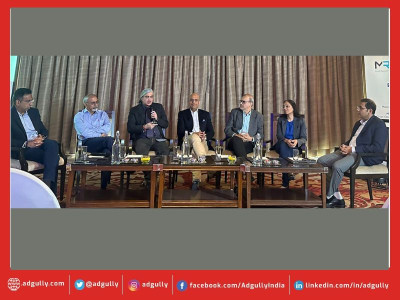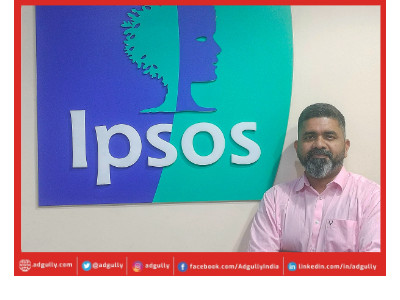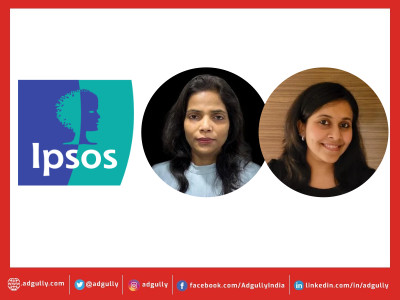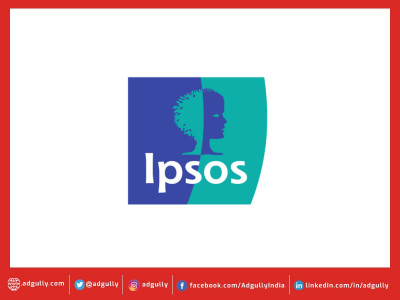81% Urban Indians predict Circa 2023 to be a better year
Ipsos Global Advisor Predictions 2023 Survey shows global citizens (65%) and urban Indians (81%) to be highly optimistic about Circa 2023, predicting it to be better than 2022. Further 7 in 10 global citizens (73%) and 1 in 2 urban Indians (57%) pronounced a bad year for them; 58% urban Indians stated the year was not good for their family.
73% urban Indians expect the global economy to emerge stronger in 2023.
And as a part of starting the new year with purpose, at least 82% urban Indians resolved to enlist personal resolutions with the intention of doing specific things for themselves and others. Top markets were Peru (91%), Colombia (90%) and Mexico (90%). 74% of global citizens agreed. Markets at the bottom of the heap were Sweden (35%) and Japan (41%).
Elaborating on the findings of the survey, Amit Adarkar, CEO, Ipsos India said, “The survey captures the zeitgeist of the new year, based on the views of citizens around key macro issues of economy, world security, environment, society and technology to understand how they perceive some of these key issues will play out in the new year. Indians are definitely fascinated by the good and bad of technology, wary of vagaries of the weather, inflation and increased cost of living, unemployment, optimistic of a better year, though will escape more to the virtual world. Indians are also expecting the war in Ukraine to end, tolerance between people to increase, Covid19 lockdowns to not occur. Most importantly, most Indians are beginning the year on a cautionary optimistic note, unlike most of our global counterparts.”
Economy in 2023
72% urban Indians expect prices to rise faster than people’s incomes in 2023. 79% of global citizens polled believe price rise will be higher than income increases. Markets agreeing most were South Africa (91%), Chile (89%), Argentina (79%). Markets agreeing least were Japan (31%) and Saudi Arabia (52%).
71% urban Indians expect Inflation to be higher in 2023 vis-à-vis 2022. Global citizens (75%) and some of the markets fearing higher inflation were South Africa (91%), Singapore (87%) and Australia (85%). Markets lowest were Brazil (50%) and Saudi Arabia (52%).
71% urban Indians polled expect higher interest rates in 2023 versus 2022. Global citizens (74%) and the markets of South Africa (90%) and Australia (87%) had most citizens predicting higher interest rates. Japan (31%) and Saudi Arabia were at the bottom of the heap.
70% urban Indians expect higher unemployment in 2023 over 2022. Global citizens (68%) and top markets fearing more unemployment were South Africa (88%), Indonesia (86%) and Turkey (80%). Lowest were Brazil (41%) and Saudi Arabia (44%).
59% urban Indians believe major stock markets around the world could crash in 2023. Malaysia (71%) and Poland (66%) felt the most. 1 in 2 global citizens (52%) too feared. Hungary (35%) and Israel (35%) were lowest.
World Security in 2023
57% urban Indians believe nuclear weapons will be used somewhere in the world. 48% global citizens fear the same. Top markets were Indonesia (69%) and Peru (62%) and lowest were Hungary (28%) and Romania (34%).
65% urban Indians (highest globally) expect the war in Ukraine to end in 2023. 40% of global citizens are hopeful. Markets most hopeful were Indonesia (64%) and China (55%) and least hopeful were Japan (25%) and France (30%).
53% urban Indians expect hackers from a foreign govt to cause a global IT shutdown. Indonesia (65%) and Australia (63%) expect most; Hungary (26%) and Romania (27%) felt least likely. The global average was 44%.
53% urban Indians (highest globally) and 53% Malaysians predict a rogue AI System that cannot be shutdown to cause a significant havoc globally in 2023. Only 27% global citizens agree. Hungary (12%) and Romania (16%).
Environment 2023
69% urban Indians predict more extreme weather event in 2023 versus 2022. Indonesia (83%) and France (74%) feared most. Global average was 65% and the market expecting least was Saudi Arabia (46%). Though it was almost half of those polled.
66% Urban Indians expect circa 2023 to be the hottest year. Spain (72%) and Chile (71%) agreed most. Romania (44%) and Hungary (45%) agreed least. The global average was 57%.
55% urban Indians fear a natural disaster hitting a major city in the country in 2023. Indonesia (78%) and Turkey (66%) fear most. Romania (22%) and Denmark (23%) feared least; 45% global citizens feared it could happen.
58% urban Indians predict people traveling less in 2023 than they did in 2019. China (66%) and Indonesia (64%) agreed most. Israel (21%) and South Korea (29%) expected least. 42% global citizens agreed.
82% Indians fear parts of our country will become unliveable due to an extreme weather event. 85% Indonesians fear the same. 36% global citizens expected this to happen. The markets lowest were Romania (19%) and Sweden (20%).
57% urban Indians are hopeful in 2023, the number of bicycles will outnumber the number of cars in the capital city of our country. Netherlands had 60% agreeing. While Romania (18%) and Canada (18%) were least hopeful. The global average was 34%.
59% urban Indians expect breakthrough technology developing in 2023 that will halt climate change. More number of people in Indonesia (76%) and United Arab Emirates (62%) agree. 32% of global citizens agree. Japan (14%) and Hungary (16%) had least agreeing.
Society in 2023
70% urban Indians predict no further covid19 lockdowns in the country in 2023. 60% of global citizens believe covid19 lockdowns won’t happen in 2023. The markets agreeing most were Indonesia (82%), Turkey (75%) and Malaysia (72%). The markets agreeing least were China (43%) and South Korea (44%). 60% of global citizens were hopeful.
71% urban Indians believe much greater number of people will live their lives in the virtual world in 2023. Indonesia (92%) and Malaysia (76%) agree most. The markets agreeing least were Japan (22%) and Netherlands (36%). The global average was 56%.
65% urban Indians expect people in the country to become more tolerant of one another in 2023. Markets agreeing most were Indonesia (81%) and UAE (77%). Japan (12%) and Hungary (14%) has very few agreeing. The global average was 34%.
Technology
63% urban Indians predict space tourism offering trip to land on Mars will be a reality in 2023.
71% urban Indians predict a space rocket will be launched en route to Mars in 2023.
Methodology
These are the results of a 36-country survey conducted by Ipsos on its Global Advisor online platform. Ipsos interviewed a total of 24,471 adults aged 18-74 in the United States, Canada, Republic of Ireland, Israel, Malaysia, South Africa, and Turkey, 20-74 in Thailand, 21-74 in Indonesia and Singapore, and 16-74 in 26 other markets between Friday, October 21 and Friday, November 4, 2022.
The sample consists of approximately 1,000 individuals in each of Australia, Brazil, Canada, mainland China, France, Germany, Great Britain, Italy, Japan, Mexico, Spain, South Africa, South Korea, and the U.S., and 500 individuals in each of Argentina, Belgium, Chile, Colombia, Denmark, Hungary, India, Indonesia, Ireland, Israel, Malaysia, the Netherlands, Peru, Poland, Romania, Saudi Arabia, Singapore, Sweden, Switzerland, Thailand, Turkey, and the United Arab Emirates.
The samples in Argentina, Australia, Belgium, Canada, Denmark, France, Germany, Great Britain, Hungary, Italy, Japan, the Netherlands, Poland, Romania, South Korea, Spain, Sweden, Switzerland, and the U.S. can be taken as representative of their general adult population under the age of 75.
The samples in Brazil, Chile, mainland China, Colombia, India, Indonesia, Ireland, Israel, Malaysia, Mexico, Peru, Saudi Arabia, Singapore, South Africa, Thailand, Turkey, and United Arab Emirates are more urban, more educated, and/or more affluent than the general population. The survey results for these countries should be viewed as reflecting the views of the more “connected” segment of their population.
The data is weighted so that each country’s sample composition best reflects the demographic profile of the adult population according to the most recent census data.
“The Global Country Average” reflects the average result for all the countries and markets where the survey was conducted. It has not been adjusted to the population size of each country or market and is not intended to suggest a total result.
Where results do not sum to 100 or the ‘difference’ appears to be +/-1 more/less than the actual, this may be due to rounding, multiple responses, or the exclusion of “don't know” or not stated responses.
The precision of Ipsos online polls is calculated using a credibility interval with a poll of 1,000 accurate to +/- 3.5 percentage points and of 500 accurate to +/- 5.0 percentage points. For more information on Ipsos' use of credibility intervals, please visit the Ipsos website.
















Share
Facebook
YouTube
Tweet
Twitter
LinkedIn